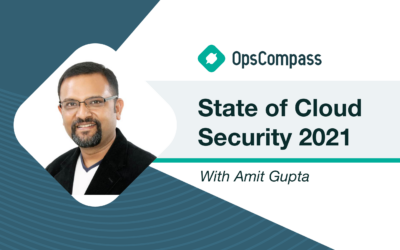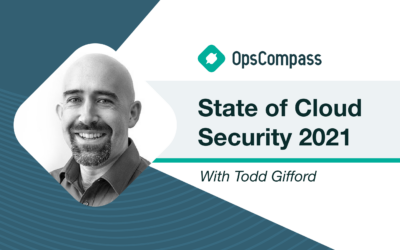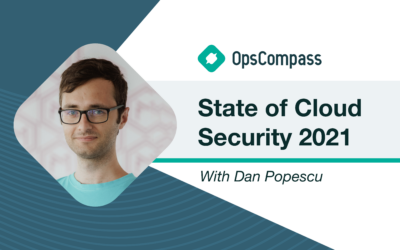Cloud Adoption is a Journey
I recently explored a report by Gartner, Top 10 Trends in PaaS and Platform Innovation, 2020, which I believe, talks about how as organizations shift their strategies for business and technology innovation to the cloud, their focus of technology-related investment also shifts to reflect new objectives including cloud centric computing, IT collaboration, and real-time intelligence.
When I read through the report, the key finding that resonated the most for me was this statement about cloud centric computing:
“Cloud-native thinking and cloud platform services have passed the stage of the proof of concept and are trending toward mission-critical mainstream adoption.”
I appreciate that the report talks about trends, which I believe supports the concept that cloud adoption is a journey. One can find a case study or anecdote taking almost any position on the cloud they want to argue. A favorite debate topic of mine is around “cost” metrics and whether cloud is “cheaper” than physical data centers and on-premises servers. I won’t weigh in here with my opinion, other than to say that organizations which have more maturity around this discipline achieve better cost optimization. These organization know their costs, know the factors that affect costs, have insight into any changes to these costs, and have an established partnership between their IT and Finance departments.
Now take those same discipline and collaboration skills and apply them to cloud services and cloud operations. The more mature an organization is in thinking about cloud platforms and collaborating between their development, security, and operations teams, the more progress they will make on modernizing their culture with respect to the cloud. The choice isn’t a binary one between data centers and a single hyperscale public cloud provider, but an evolving approach that includes hybrid, multi-cloud, and SaaS components.
IT teams still have the same responsibility to provide quality service and operational security to support business success. However, they now also have a much greater demand to understand how to govern and manage multi-cloud resources. If you apply the attributes from the cost example from above, an IT organization needs to manage an inventory of all their cloud resources, be alerted on any misconfigurations (which can affect the operational security of cloud resources), and obtain real-time intelligence about the “drift” or changes made to those resources before they affect quality of service.
While planning remains a critical factor when embarking on a multi-cloud journey, it is having visibility into those environments that lets you truly achieve confidence. Everything in the cloud can be queried using an API, which means that real confidence doesn’t come from a project plan or spreadsheet, but rather from software that continuously inventories your multi-cloud environment and reports the ground truth. In finance there is the concept of “plan” versus “actuals” and the same is true of multi-cloud. The “plan” may have set the rules for which services and workloads were approved for which clouds, but the “actuals” are connecting to each cloud and seeing what is actually deployed and how it is utilized. As in finance, when there is too much variance, it is time to adjust the plan.
My advice? Don’t go it alone. Organizations that are “all in” with a single cloud vendor can leverage that cloud provider’s management resources. For those on a multi-cloud journey however, find an independent, trusted partner to help you gain the insights you need to manage all of your cloud environments. Whether a specialty consulting firm, a training provider, or a software vendor, look for a partner who focuses all their time thinking about multi-cloud, and allows your organization to focus on business value.
GARTNER is a registered trademark and service mark of Gartner, Inc. and/or its affiliates in the U.S. and internationally and is used herein with permission. All rights reserved. Gartner, Top 10 Trends in PaaS and Platform Innovation, 2020, 3 March 2020, Yefim Natis, Massimo Pezzini, Paul Vincent, Van Baker, Fabrizio Biscotti




